One-Fifth Of Online Jobs Lost In Iran Due To Internet Restrictions

New figures show that due to extensive internet and social network restrictions, 20 percent of people in Iran have lost their online jobs in the past four months.

New figures show that due to extensive internet and social network restrictions, 20 percent of people in Iran have lost their online jobs in the past four months.
According to Jobvision website, the restriction imposed on Iranians’ access to social networks following nationwide protests has resulted in a series of undesirable consequences such as cutbacks, increased uncertainty about the future, reduced salaries, and the suspension of development plans.
The website published a chart showing that 46 percent of organizations have suspended or postponed more than half of their recruitment programs due to the recent internet restrictions.
45% of companies or businesses that depend on the Internet have decided to reduce their payments or had to pay wages by delay.
The statistical findings of Jobvision show one out of every five people have lost their jobs, and 16% of those working in this area expect to be fired soon.
Restrictions on Instagram has had a deep impact on the lives of people who used to make a living on this popular social network.
The government often shuts of slows down access to the Internet and social media platforms, while President Ebrahim Raisi promised in his election campaign that he would not block Instagram because "it is the place of business for many Iranians".
Since the beginning of nationwide protests almost four months ago, the government has cracked down on protests violently, and officials have repeatedly blamed cyberspace and foreign media for provoking the protesters.

Prime Minister Justin Trudeau has reaffirmed Canada's commitment to pursue justice for the “senseless” deaths of those onboard an airliner downed by Iran in 2020.
Trudeau made the comments in a meeting with family members of victims of Ukraine International Airlines Flight PS752 that was shot down by Iran’s Revolutionary Guard on January 8, 2020.
Mélanie Joly, Minister of Foreign Affairs, Omar Alghabra, Minister of Transport and Ralph Goodale, High Commissioner in the United Kingdom were also present in the meeting which was held on the anniversary of the tragic event.
A statement published by Global Affairs Friday said, “Canada honors the victims of Flight PS752 and all air disasters and continues to stand in solidarity with their families and loved ones.”
“Canada and its partners in the Coordination Group—Sweden, Ukraine and the United Kingdom—continue to work together to hold Iran accountable for the downing of Flight PS752 and ensure full reparations are made for the deaths of 176 innocent people,” reads the statement.
On December 28, 2022, the Coordination Group of countries affected by the tragic incident announced an important step in the pursuit of accountability in accordance with international law. Members of the group Britain, Canada, Sweden, and Ukraine urged Iran to agree to arbitration as Tehran has stonewalled over an independent investigation and proper compensation.
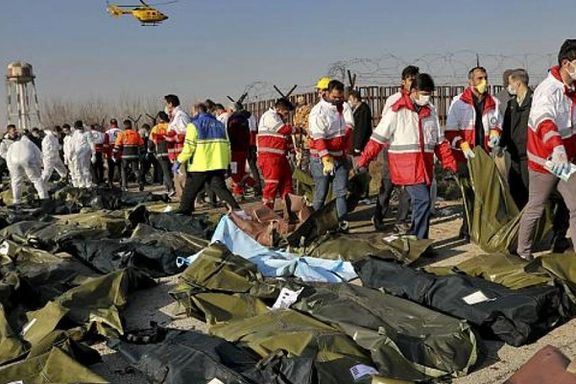
The airliner was shot down by two air-defense missiles fired by the IRGC as it took off from Tehran’s Imam Khomeini International Airport. Hours earlier, the IRGC had fired more than a dozen missiles at Iraqi bases hosting US troops in retaliation for the killing of the IRGC Quds Force Commander Ghasem Soleimani who was targeted by a US drone strike just five days earlier.
All 176 passengers and crew, including 63 Canadians and 10 from Sweden, as well as 82 Iranian citizens on the plane died in the disaster.
Iranian activist groups have called for large rallies both in Iran and abroad on Sunday, January 8 to mark the third anniversary of the incident, coupled with ongoing antigovernment protests.
The execution of two more protesters in Iran on Saturday may add to the intensity of the gatherings on Sunday.
The Canadian Broadcasting Corporation reported January 6 that Ottawa is weighing the options regarding claims that Iran’s envoy to International Civil Aviation Organization (ICAO), Farhad Parvaresh might have had involvements with Iran’s Revolutionary Guard.
Parvaresh is currently based in Canada and some are demanding that the federal government impose restrictions on his movements.
Parvaresh was the head of government airline, Iran Air during the years when the company’s aircraft were used to transport weapons to Syria, a task organized and controlled by IRGC’s extraterritorial Quds (Qods) Force.
In a confidential audio recording obtained by Iran International in April 2021, former foreign minister Javad Zarif told an Iranian journalist that Iran Air was extensively used to ferry weapons to Damascus. The authenticity of the long audio recording was not disputed. Zarif’s reference was to early and mid-2010s, when Parvaresh headed Iran Air.
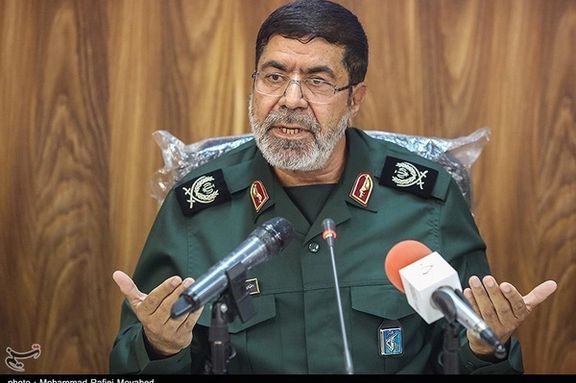
Iran's Revolutionary Guard spokesman Ramazan Sharif says Supreme Leader Ali Khamenei sought to support Palestinian militias against Israel through Quds Force.
He said that Ali Khamenei had asked former commander of Qods (Quds) force Ghasem Soleimani to empower the resistant front, a term the Islamic Republic uses for its proxy groups across the region.
Sharif said in remarks this week that a wave of anti-Israeli sentiments in the third and fourth generation of Palestinians, not only in the Gaza Strip but also in the West Bank, was achieved "thanks to Soleimani," without elaborating on how.
However, many documented reports and statements by Iranian officials in the past show that Tehran is the main financial and military backer of Hezbollah and has also provided substantial support to Palestinian militant groups and the Houthis in Yemen.
He added that the Supreme Leader had also assigned Soleimani to supporting the Lebanese Hezbollah, which led to the “victories” of the group.
On January 3, 2020, the US military, on the order of former President Donald Trump, killed Soleimani in a drone strike near Baghdad International Airport, saying that he had been "actively developing plans to attack American diplomats and service members in Iraq and throughout the region."
In a tweet on the occasion of the third anniversary of the targeted killing of Soleimani by the US, the Iranian Foreign Ministry renewed the regime’s pledges to avenge his death, saying the US killing of the former IRGC's Quds Force commander in 2020 failed in bringing Washington its desired outcome.
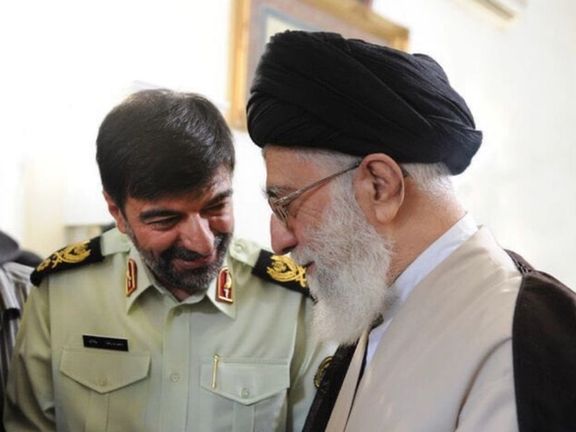
Iran's Supreme Leader Ali Khamenei has appointed an infamous military figure as the country's new police chief to step up crackdown on protests.
On Saturday, Khamenei appointed Ahmadreza Radan, an IRGC officer who was transferred to police forces many years ago, as the country's new Commander-in-chief of Law Enforcement Force replacing Hossein Ashtari.
Sources had earlier told Iran International that Khamenei had "harshly scolded" Ashtari over his "incompetence" in quelling anti-regime protests.
Radan served as a deputy police chief from 2008 to 2014 and played a key role in the crackdown on protesters after the disputed 2009 presidential elections and in the formation of “morality police”.
Radan was heading the Center for Strategic Studies of the Law Enforcement Force.
He has been designated by the United States as a person who is, "among other things, responsible for or complicit in, or responsible for ordering, controlling, or otherwise directing, the commission of serious human rights abuses against citizens of Iran or their family members."
In 2007, Ahmad-Reza Radan launched a "Public Security Plan". The police arrested dozens of alleged criminals for what it called “increasing public security”. The people were sometimes beaten on camera in front of city inhabitants.
In his Saturday decree, Khamenei urged Radan to ensure that people are satisfied with the police's performance in providing security, a rhetoric indicating security for the regime amid protests.
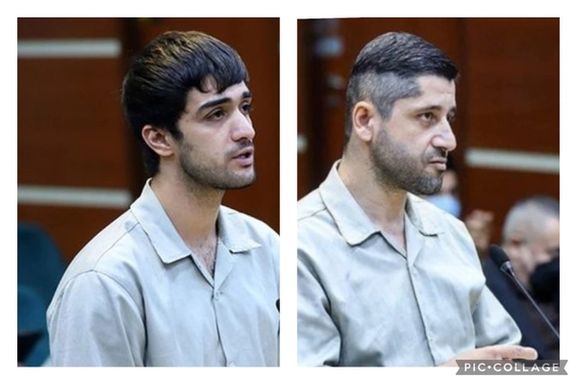
The clerical regime in Iran hanged two men on Saturday for allegedly killing a Basij agent during antigovernment protests near the capital Tehran in October.
"Mohammad Mehdi Karami and Seyyed Mohammad Hosseini, main perpetrators of the crime that led to the unjust martyrdom of Ruhollah Ajamian were hanged this morning," the judiciary said in a statement carried by the official IRNA news agency.
Karami was 22 years old, and Hosseini 39 were tried without having access to attorneys of their choosing, as almost all other dissidents and protesters arrested during the demonstrations. The circumstances related to the killing of Ajamian are not clear, as often the Basij paramilitary forces take the lead to attack protesters and use deadly force.
The convictions were not based on a criminal charge related to the murder per se, but they were charged with ‘moharebeh’, meaning “war against God”, a vague religious concept. The Islamic Republic applies the charge to people who might get into a confrontation with security forces during protests.
“I met with Seyed-Mohammad Hosseini at Karaj Prison. He cried through his account of tortures, being beaten with tied hands and legs and blindfolded, to being kicked in the head and losing consciousness, the soles of his feet being beaten with an iron rod to being tased in different parts of the body,” Ali Sharifzadeh Ardakani who says he has just recently been allowed to represent Hosseini tweeted on December 18.
Despite widespread international attempts to stop the executions, the regime decided to implement the verdict reached in November. Officials say death sentences for three others in the same case have been canceled.
So far, the government has executed four protesters and eleven others have received the death penalty, some for much less charges than murder, while at least 100 protesters face charges that could end in death sentences for them, an Iranian human rights group based in Oslo has reported.
The first two hangings triggered strong international condemnations and hundreds of lawmakers in Europe and Australia began sponsoring Iranian detainees in danger of execution to generate publicity and impact their fate.
French lawmaker Aude Luquet had taken on Hosseini’s political sponsorship and called for an immediate halt to all executions in Iran. Hosseini is also sponsored by Austrian parliamentarian Harold Truch.
Mohammad-Mehdi Karami was sponsored by Helge Limburg, member of the German parliament. “The regime in Iran assumes that he was involved in a killing. In truth he should die because he stands up for democracy and human rights. His execution would be a judicial killing,” Limburg tweeted December 12.
Activists had earlier called for protests in Iran and abroad on Sunday, January 8, the third anniversary of the downing of a Ukrainian airliner over Tehran by the Revolutionary Guard that killed all 176 people onboard. The executions on Saturday will add fuel to people's anger and big protests can take place as early as today.
Dozens of prisoners are either on hunger strike or suffer from life-threatening illnesses that are not treated by prison authorities and some are deprived of life-saving medications.
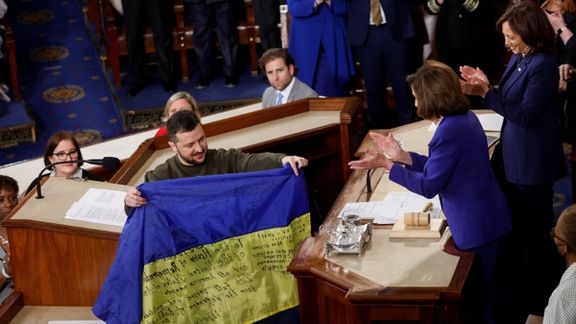
The United States Treasury Friday designated six executives or board members of an Iranian company it said were involved in supplying military drones to Russia.
Qods Aviation Industries was itself sanctioned in November. The US also designated Friday the director of Iran’s Aerospace Industries Organization over its role in manufacturing Iran’s ballistic missiles.
“We will continue to use every tool at our disposal to deny [Russian President Vladimir] Putin the weapons that he is using to wage his barbaric and unprovoked war on Ukraine,” Treasury Secretary Janet Yellen in a statement. The action was taken, said the Treasury, under Executive Order 13382, from 2005, ‘Blocking Property of Weapons of Mass Destruction Proliferators and Their Supporters.’
The US argues that supply of drones from Iran violates a provision in United Nations Security Council Resolution 2231, which barred Tehran from trading certain kinds of weapons – including drones “capable of delivering at least a 50kg payload to a range of at least 300km.”But the drones the US and Ukrainian say Iran have sent carry a slightly lighter load.
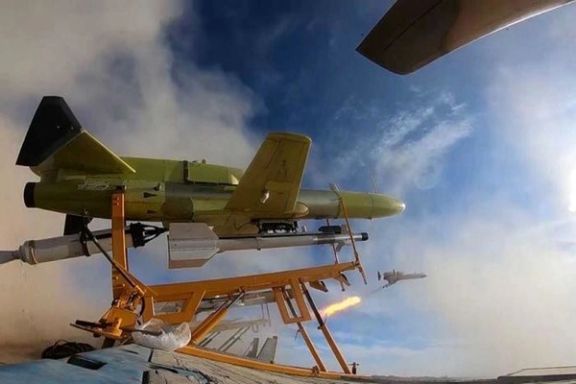
While Friday’s action may do little - any US assets of those designated can be frozen - it illustrates the Ukraine crisis changing calculations in Washington over Iran policy. The administration of President Joe Biden took office in January 2021 ostensibly committed to restoring the 2015 Iran nuclear agreement, but has shifted its focus towards sanctions over Tehran’s links with Russia and its treatment of internal protests.
‘Pure damage’
In Tehran, opponents of the 2015 agreement, the JCPOA (Joint Comprehensive Plan of Action) take heart. Saeed Jalili, top security official under President Mahmoud Ahmadinejad, has argued the JCPOA brought little inward investment and was “pure damage” even before the US withdrew in 2018.
Jalili advocates a ‘resistance economy,’ based on domestic production and lowering import dependence. But while Iranian domestic employment picked up slightly after the US in 2018 left the JCPOA and imposed ‘maximum pressure’ sanctions according to government figures, some economists suggested this was more reaction to circumstance, including the falling rial, than any strategy.
Likewise, with ‘maximum pressure’ stymying the Rouhani government’s efforts of attracting western European investment, including energy majors, Iran turned elsewhere, an approach crystalized in President Ebrahim Raisi championing a ‘turn east.’
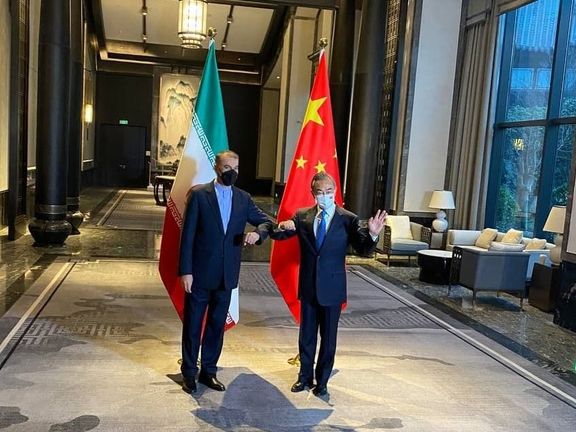
But many analysts argue that the Ukraine crisis – although regime officials forlornly hoped it would make Europe desperate for Iranian energy – has accelerated Iran-Russia rapprochement, which both sides say they would like to base on economics as well as security.
Stoking Iranian skepticism towards Russia
The Washington Institute this week published a policy paper by senior fellow Henry Rome arguing the US should “stoke longstanding Iranian skepticism towards Russia” to combat the “tightening of ties” triggered by the Ukraine crisis. Rome cited November’s statement from 35 former Iranian diplomats calling Tehran’s reaction a “grave mistake” and reiterated allegations that Russia had leaked to the media details about shipments of Iranian drones.
The US, Rome argued, should “emphasize the potential for friction and mistrust between the two partners” to “generate the most intense reaction in Tehran,” as well as extending sanctions over drone shipment, and encouraging European States to designate Iran’s Revolutionary Guards (IRGC) to “impose a greater economic cost on Tehran for supporting Russia.”
European Union foreign ministers are expected to discuss new Iran sanctions at the end of January. In letter published in the newspaper Volkskrant on Friday, leaders of ten Dutch parliamentary parties called for the IRGC to be designated along with officials and their families.
Netanyahu the mediator?
In other fall-out from Ukraine, an aide to President Volodymyr Zelenskyy told Israeli television Thursday that new Prime Minister Benjamin Netanyahu was a potential mediator with Russia. Mykhailo Podolyak said he had “no doubt” Netanyahu “understands precisely what modern wars are and what is the essence of mediation under these conditions.”
While the Ukraine war has boosted Israeli arms sales due to poorly-performing Russian weapons, Netanyahu - who touted his warm relationship with Putin in 2019 elections by slapping a giant picture of the Russian president outside the Likud Party headquarters - has said he was approached while in opposition to mediate but deferred to the government.